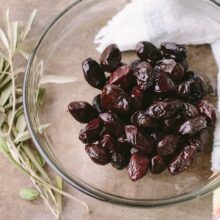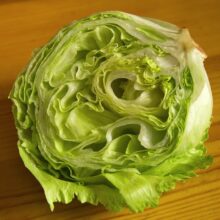The Ultimate Guide to Nutrition for Weight Loss: Tips and Tricks for a Slimmer You
Introduction
Losing weight can be a challenging and frustrating experience, especially when it seems like no matter what you do, the pounds just won’t come off. But the truth is, weight loss is not just about cutting calories and exercising more – it’s also about making sustainable lifestyle changes that promote a healthy and balanced diet. In this ultimate guide, we’ll share the top tips and tricks for a slimmer you, from the foods you should be eating to the ones you should avoid.
Understanding Calorie Deficit
Before we dive into the specifics of nutrition for weight loss, it’s essential to understand the concept of calorie deficit. A calorie deficit occurs when you consume fewer calories than your body burns, resulting in weight loss. To achieve a calorie deficit, you need to create a gap between your daily caloric intake and your daily caloric expenditure.
Calculate Your Caloric Needs
To calculate your daily caloric needs, you need to know your basal metabolic rate (BMR). Your BMR is the number of calories your body needs to function at rest, and it’s calculated based on your age, sex, weight, and height. You can use an online BMR calculator to determine your daily caloric needs.
Example: Calculating Daily Caloric Needs
Let’s say you’re a 30-year-old female who weighs 150 pounds and is 5’6″ tall. According to the BMR calculator, your daily caloric needs are approximately 1,800 calories.
Macronutrients for Weight Loss
When it comes to nutrition for weight loss, macronutrients play a crucial role. The three main macronutrients are carbohydrates, protein, and fat. Here’s how to balance them for optimal weight loss:
Carbohydrates
* Focus on complex carbohydrates like whole grains, fruits, and vegetables
* Limit refined carbohydrates like white bread and sugary snacks
* Aim for 45-65% of your daily caloric intake from carbohydrates
Example: Carbohydrate-Rich Foods
* Brown rice
* Quinoa
* Sweet potatoes
* Whole wheat bread
* Fresh fruits like apples and bananas
Protein
* Aim for 1.6-2.2 grams of protein per kilogram of body weight
* Include protein-rich foods like lean meats, fish, eggs, dairy, and legumes
* Protein helps build and repair muscle tissue, which is essential for weight loss
Example: Protein-Rich Foods
* Chicken breast
* Salmon
* Turkey
* Greek yogurt
* Lentils
Fat
* Focus on healthy fats like avocado, nuts, and olive oil
* Limit saturated and trans fats like butter and processed snacks
* Aim for 20-35% of your daily caloric intake from fat
Example: Healthy Fats
* Avocado
* Almonds
* Walnuts
* Olive oil
* Fatty fish like salmon and tuna
Portion Control and Meal Frequency
Portion control and meal frequency are crucial for weight loss. Here are some tips to help you get started:
Portion Control
* Use a food scale or measuring cups to measure your food
* Eat slowly and stop when you feel satisfied, rather than stuffed
* Avoid eating in front of screens or while doing other activities
Example: Healthy Portion Sizes
* 3-ounce serving of protein (about the size of a deck of cards)
* 1/2 cup serving of cooked vegetables (about the size of a small fist)
* 1 slice of whole grain bread (about the size of a small rectangle)
Meal Frequency
* Aim for 3-5 main meals and 2-3 snacks per day
* Space out your meals to keep your metabolism boosted and hunger satisfied
* Include a balance of protein, carbohydrates, and healthy fats in each meal
Hydration and Supplements
Hydration and supplements can also play a crucial role in weight loss. Here are some tips to help you get started:
Hydration
* Aim for at least 8 cups (64 ounces) of water per day
* Drink water before meals to help with portion control and satiety
* Avoid sugary drinks and caffeine, which can dehydrate the body
Example: Hydrating Foods
* Watermelon
* Cucumbers
* Celery
* Tomatoes
* Bell peppers
Supplements
* Consider adding protein powder or meal replacement shakes to your diet
* Look for supplements that are natural and backed by scientific research
* Consult with a healthcare professional before adding any new supplements to your diet
Conclusion
Losing weight is not just about cutting calories and exercising more – it’s also about making sustainable lifestyle changes that promote a healthy and balanced diet. By understanding calorie deficit, macronutrients, portion control, meal frequency, hydration, and supplements, you can create a personalized nutrition plan that helps you achieve your weight loss goals. Remember to be patient, stay consistent, and celebrate your progress along the way. With the right nutrition plan and mindset, you can achieve a slimmer and healthier you.





